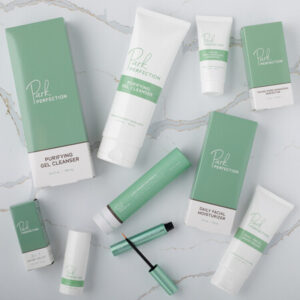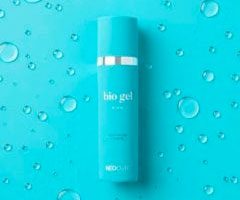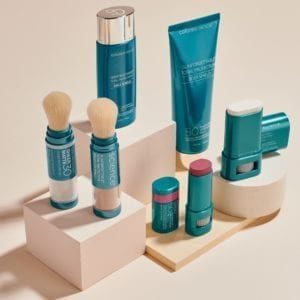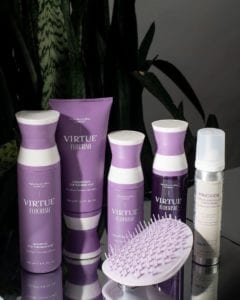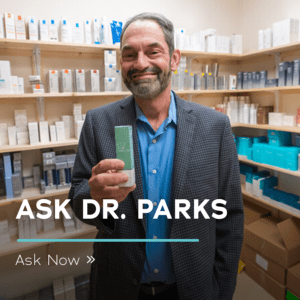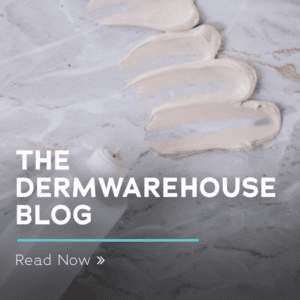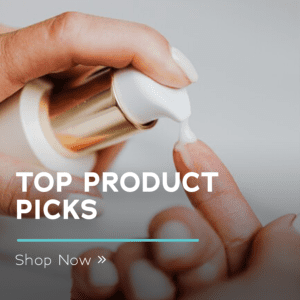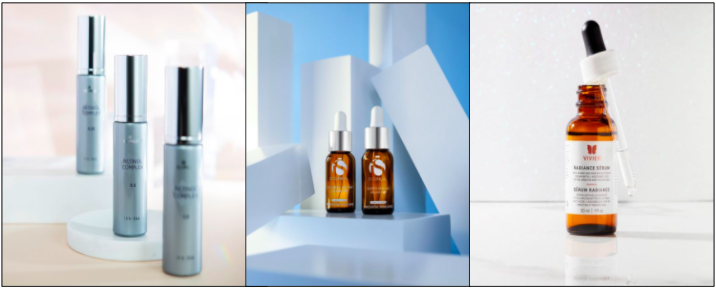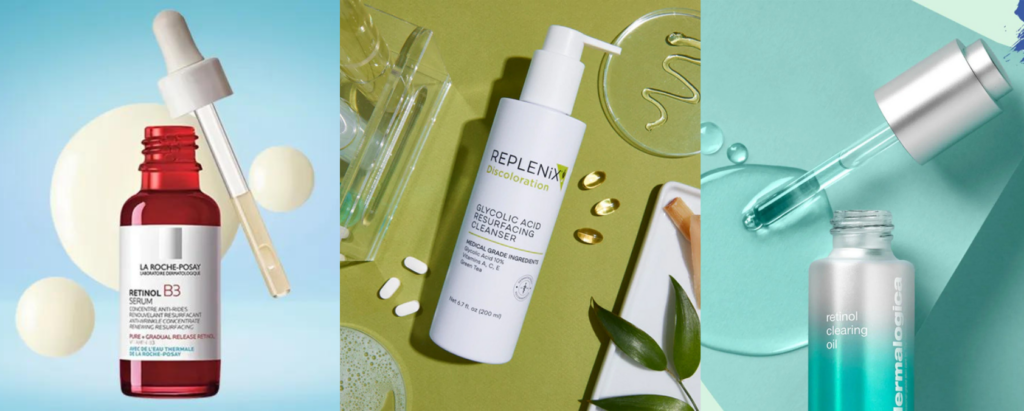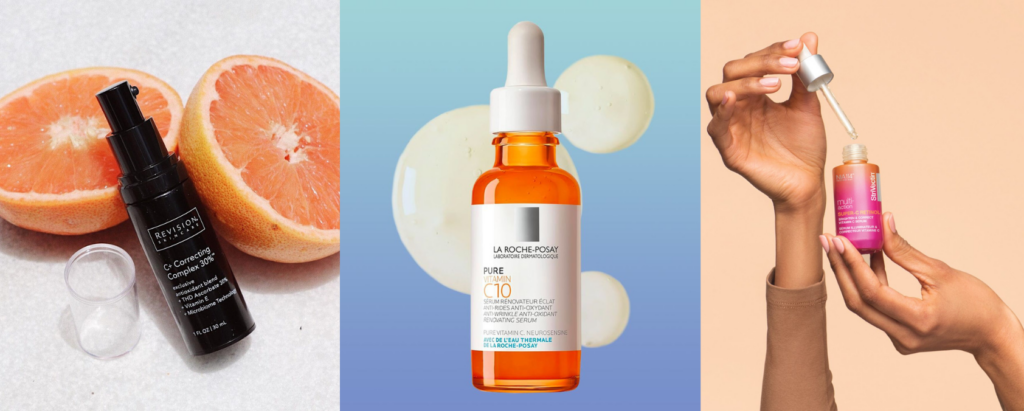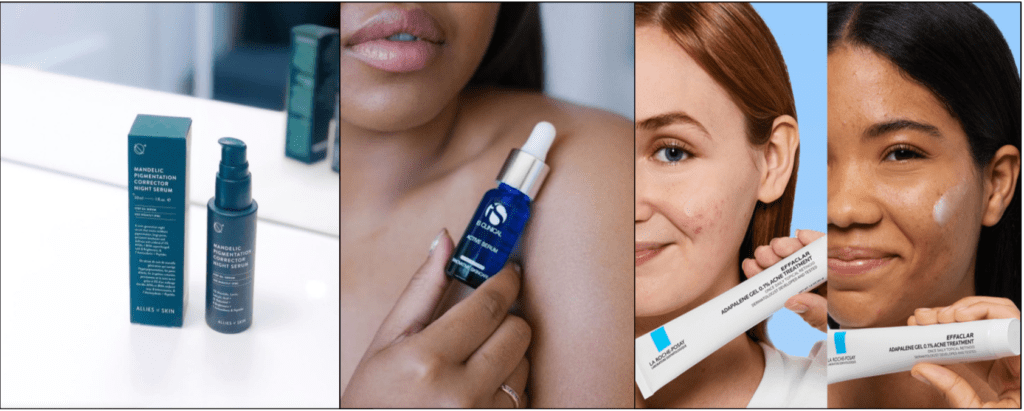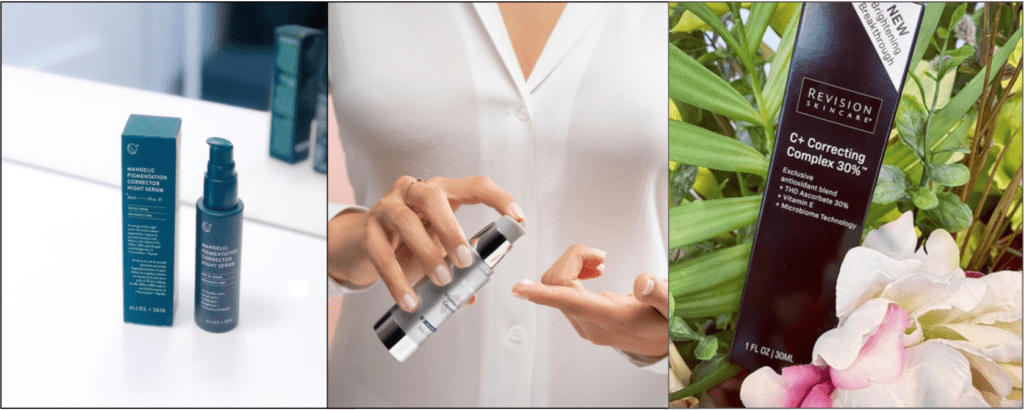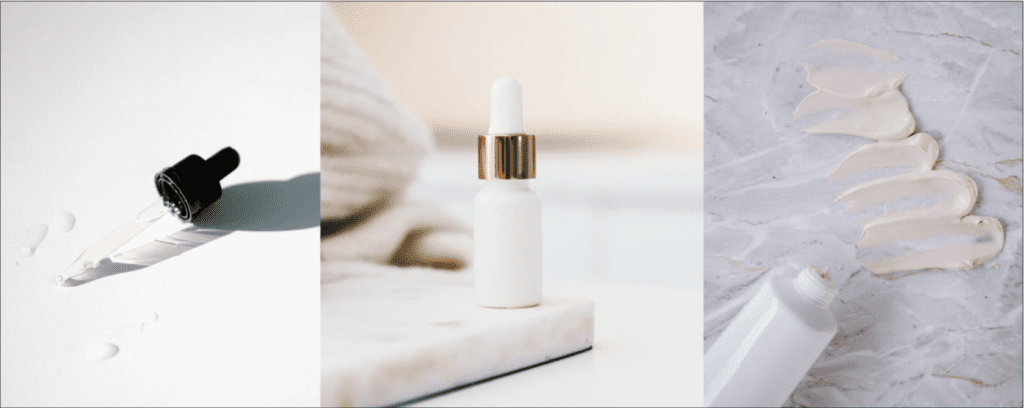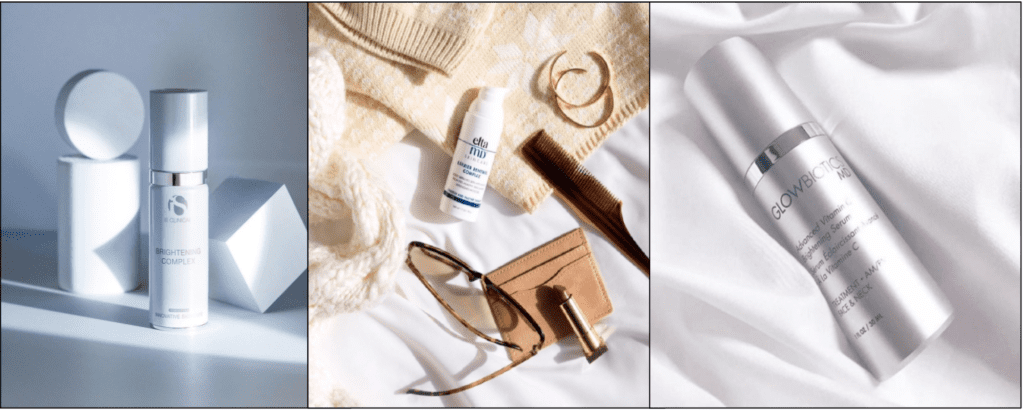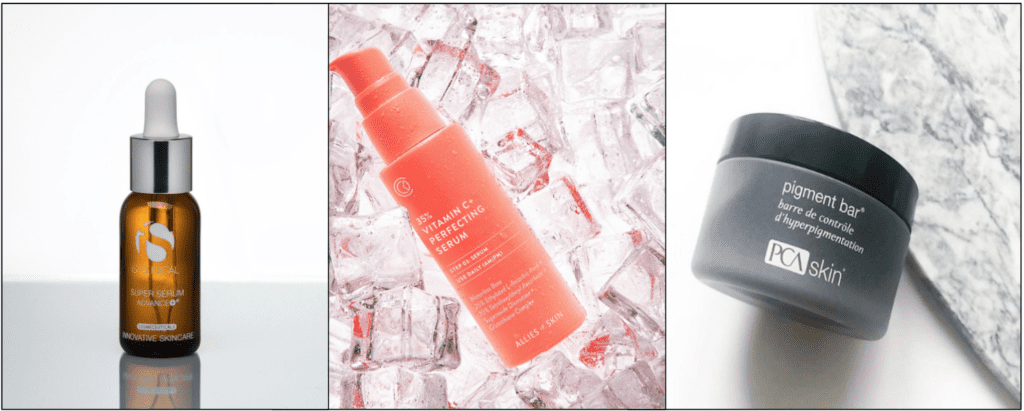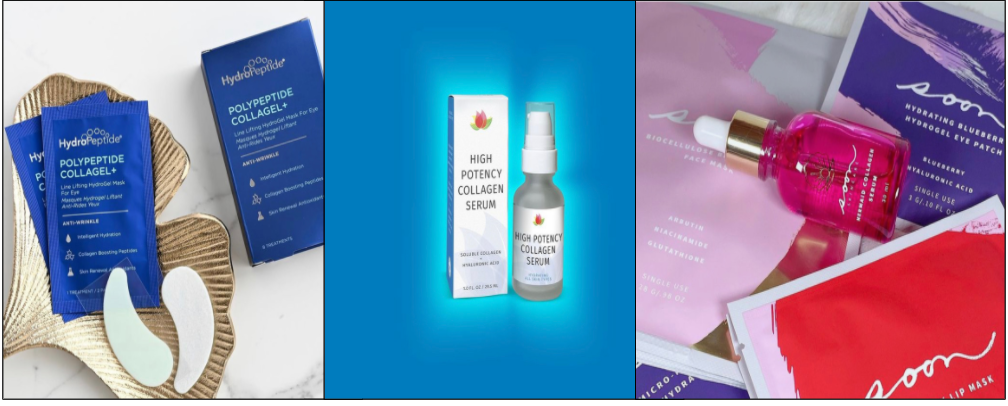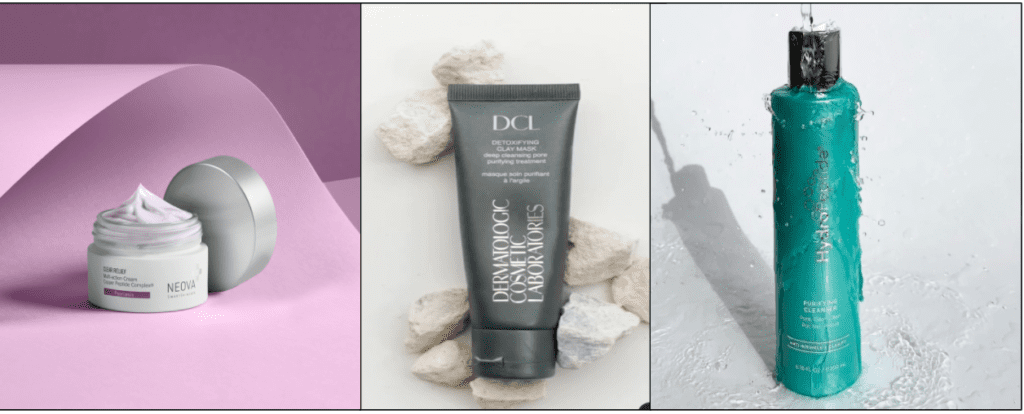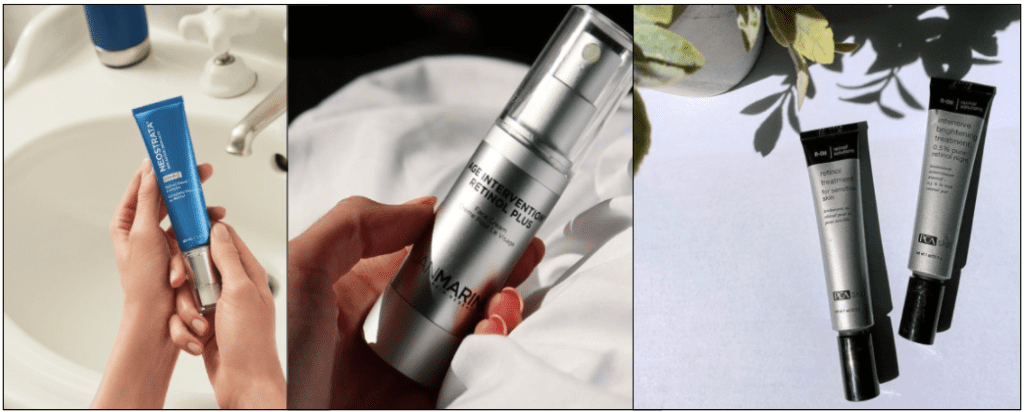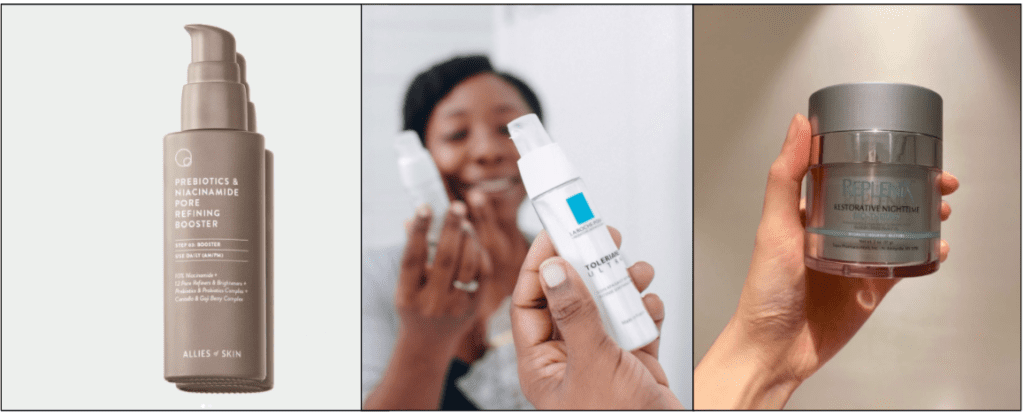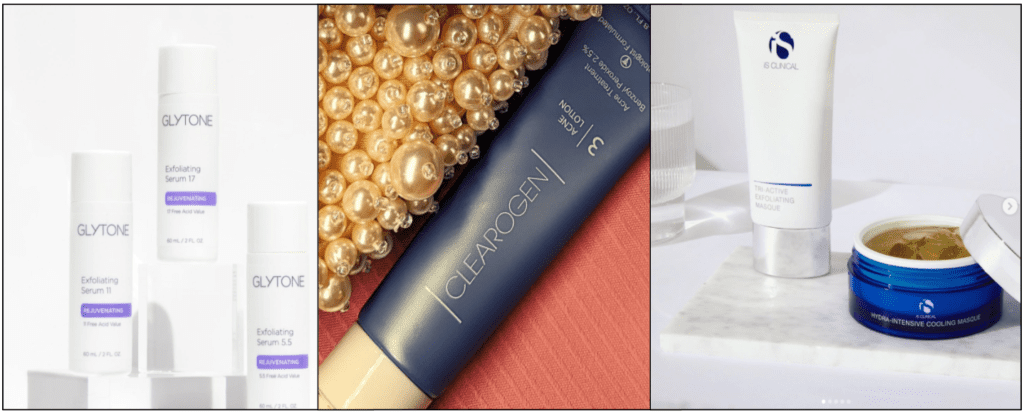As of March 27, 2020, the Food and Drug Administration (FDA) of the United States was affected by the Coronavirus aid, relief and economic security act (CARES) act that included reform of the way over-the-counter drugs and products are regulated. One of the ingredients that was affected in this change was the popular and beloved ingredient for skincare, hydroquinone. Hydroquinone is a skin-bleaching agent, used in skincare to lighten areas of the skin due to concerns like hyperpigmentation, dark spots, melasma, or acne scars. These spots are caused by an overproduction of melanin, a dark pigment in the skin.
This change in FDA regulations made products including hydroquinone no longer available for purchase over the counter; you’ll need a doctor’s prescription to use it. We know that many of you are still looking for a solution to your dark spots, acne scars or hyperpigmentation, so below we’re lining up some of the best alternatives to hydroquinone that you can find in products over the counter.
Retinol: As you’re probably aware, retinoids are derivatives of Vitamin A. Retinol is a form of retinoid that’s available over the counter in many products. It’s used for treating many skin conditions, including acne, sun damage, and most notably, signs of aging. It works by increasing skin cell turnover, in addition to interfering with the transfer of melanin to the skin and dispersing melanin throughout the skin rather in just one spot. Retinol is particularly effective when used in conjunction with other products (like Azelaic Acid)- except for Vitamin C. These ingredients, when used together, can cause irritation and drying of the skin. A great product to get started in retinol is the SkinMedica Retinol Complex 0.5. It contains 0.5% retinol that works to renew the skin and improve skin tone. For a more gentle formula suited for sensitive skin, the PCA Skin Retinol Treatment pairs retinol with niacinamide and their patented OmniSome delivery system to reduce irritation. This makes it able to be used more frequently for those with sensitive or easily irritated skin.
Azelaid Acid: Azelaic Acid is a dicarboxylic acid, unlike the more commonly recognized alpha and beta-hydroxy acids. Unlike these other acids, it doesn’t have as strong of an exfoliating effect, but it’s known to be more effective in helping with discoloration and evening out your overall skin tone. It works by inhibiting the enzyme tyrosinase, which is essential in the production of melanin in the skin, helping to even out current dark spots and prevent new ones from forming. The HydroPeptide Redefining Serum uses azelaic acid, seabuckthorn berry extract and 6 different peptides to reveal a healthy and spot-free complexion. The Jan Marini Bioclear Face Lotion has azelaic acid, glycolic acid and salicylic acid to not only heal dark spots and hyperpigmentation, but also signs of aging and large pores. For more information on azelaic acid, check out our blog on the Benefits of Azelaic Acid.
Vitamin C: You know it, you love it- Vitamin C. Vitamin C is a potent antioxidant used for many concerns in the skin. It’s beloved for improving the appearance of dark spots, hyperpigmentation, and for evening out skin tone as a whole. It works by interfering with the production of pigment in the skin, healing any spots currently on the skin and preventing new ones from forming. It also helps with sun damage, as it neutralizes free radicals from the sun. However, remember to always remember to apply SPF in addition to your Vitamin C products in the morning. The La Roche Posay Redermic C Vitamin C Cream uses Vitamin C and hyaluronic acid to calm and soothe the skin while also delivering skin-brightening benefits. The Revision Skincare Vitamin C Lotion is also a great option, as it has 30% Vitamin C paired with Vitamin E and squalane for optimal antioxidant protection while also fading dark spots and evening out the skin tone. Check out our blog on Vitamin C to learn more about what benefits it has for your skin.
Arbutin: Arbutin is a naturally-derived compound found in the leaves of multiple different species of plants. It’s known as one of the most popular non-hydroquinone skin brighteners, as it inhibits the production of tyrosinase in the skin, much like the other ingredients mentioned above. It can be used in conjunction with other skincare ingredients, including Vitamin C and retinol, and is known to be safe and non-irritating for all skin types, even sensitive skin. Arbutin is released slowly into the skin, making it more gentle on the skin and ideal for long-term effects. The iS Clinical Super Serum Advance uses Vitamin C, arbutin, and copper tripeptide growth factors to safely and effectively heal uneven pigmentation in the skin. The Vivier Radiance Serum is a pharmaceutical grade serum with arbutin and Vitamin C to reduce the appearance of sun spots, even out skin tone and fade signs of aging.
While the FDA’s announcement may not be ideal for those who were hoping to use hydroquinone to even out their skin tone, but there are effective and gentle alternatives that can be found in skincare ingredients like the ones mentioned above. For more information on the new reforms, check out this article from the FDA.

